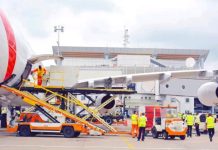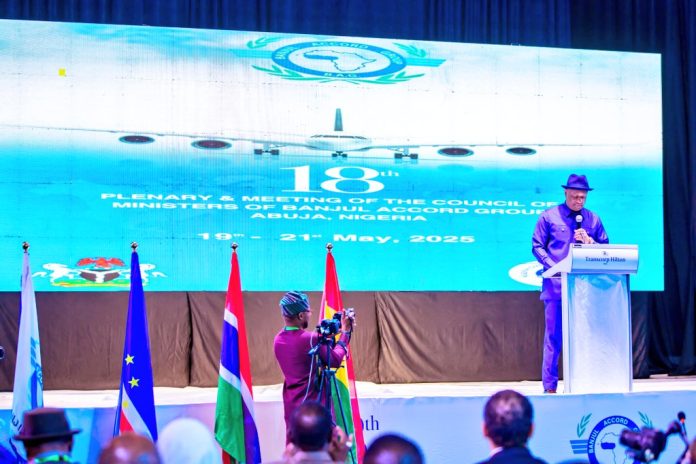The Federal Government of Nigeria has renewed calls for the accelerated implementation of the Single African Air Transport Market (SAATM), stressing its potential to reduce airfares, enhance intra-African connectivity, and transform the continent’s aviation landscape.
Speaking at the opening of the 18th Plenary Session of the Banjul Accord Group (BAG) in Abuja, Minister of Aviation and Aerospace Development, Festus Keyamo, emphasised the need for urgent action. He noted that despite political commitments, progress on SAATM has been slow, hindered by fragmented airspace, excessive taxes, regulatory barriers, and high operational costs.
“SAATM will not only reduce the cost of air travel across the region but also enable smoother movement of passengers and cargo with fewer transit points and competitive prices,” Keyamo stated. He added that increased connectivity would strengthen regional integration, trade, tourism, and investment across Africa.
The three-day event, hosted by the Nigerian Civil Aviation Authority (NCAA), convened aviation stakeholders from BAG’s seven member countries—Nigeria, Ghana, Liberia, Guinea Conakry, The Gambia, Cape Verde, and Sierra Leone. Participants reaffirmed their commitment to policy harmonisation, infrastructure development, and regional aviation safety.
NCAA Director-General, Capt. Chris Najomo, described the session as an opportunity to reflect on achievements and tackle persistent challenges such as infrastructure gaps, safety risks, digital transformation, and skilled personnel shortages.
Also speaking, Fansu Bojang, BAG Secretariat Head and Director-General of the Gambia Civil Aviation Authority, urged members to take unified steps toward unlocking the region’s aviation potential. He highlighted the group’s success in stabilising the industry but stressed the need for further cooperation to drive sustainable growth.
Representing the National Assembly, Senator Augustine Akobundu affirmed Nigeria’s legislative support for regional aviation goals. He called for shared technical standards, safety oversight, and strategic investment across member states.
As a leading voice in the sub-region, Nigeria pledged continued advocacy for SAATM and deeper regional collaboration through BAG, aiming to position West Africa as a model for integrated, safe, and efficient air transport in Africa.













